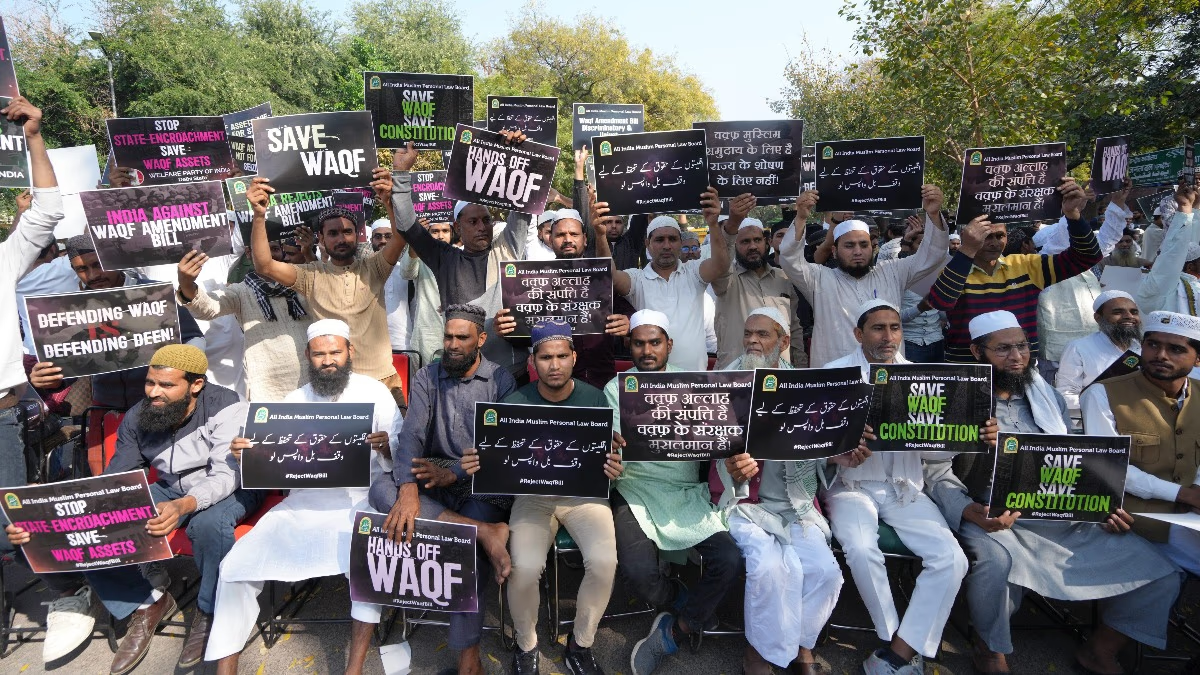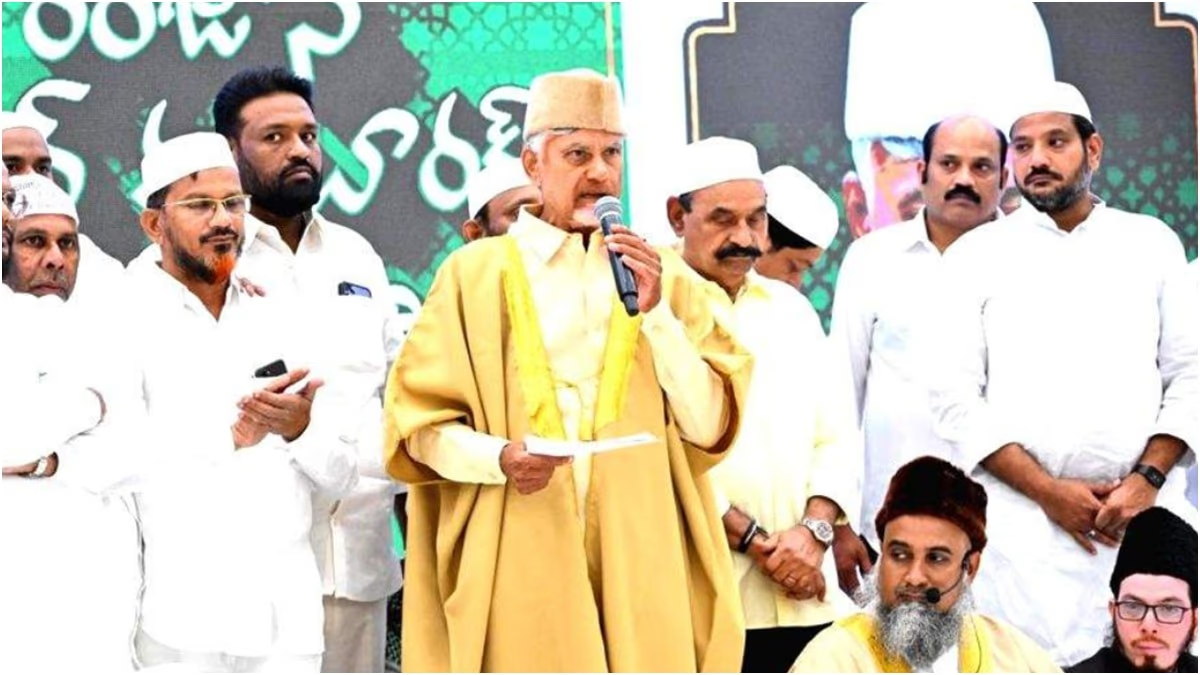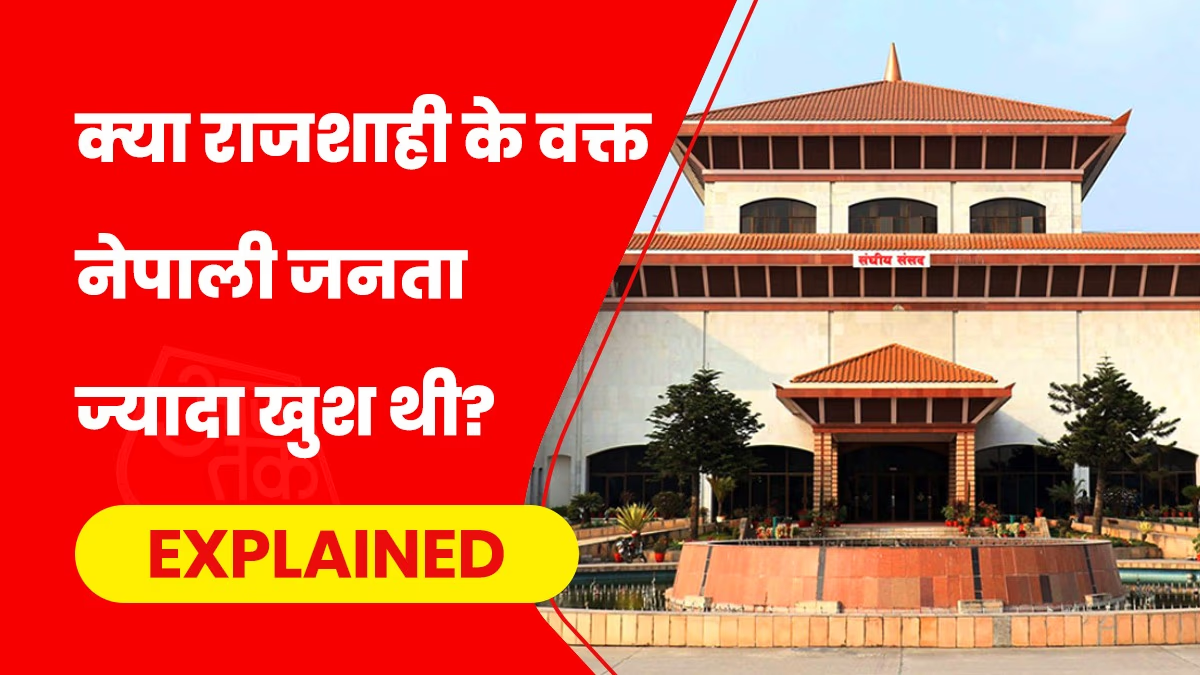In a few hours, the political scene inside the parliament is set to change as an eight-hour debate unfolds. It will determine whether the era of the powerful Muslim institution, the Waqf Board, becomes a matter of the past. At 12 PM tomorrow, the government is set to introduce the Waqf Amendment Bill in the Lok Sabha. A vote will ensue, and it's anticipated that Modi's government could emerge victorious on one of its most critical legislative agendas of this tenure. So far, Nitish Kumar, Chandrababu Naidu, Deve Gowda, Chirag Paswan, Manjhi, and Jayant Chaudhary's parties have signaled their support for the bill. In Karnataka, two MPs from the allied JD(S) will also back the amendment bill.
Although the BJP is 32 seats shy of a self-sustained majority in their third term, the government's prowess will soon be displayed with the Waqf Amendment Bill. Despite losing 63 seats compared to the previous Lok Sabha, the government is poised to show that reducing seats won't deter them from making substantial decisions. This third term has the Modi government leaning on the support of 53 MPs from 14 allied parties, yet they're prepared to demonstrate that consensus transcends mere majority. Today, the pertinent question is whether the era of secularism-driven politics is transitioning with the proposed Waqf Bill.
Is the politics of the Muslim vote about to change?
'Secular politics' is a term coined by the opposition against the BJP in the '90s. While the BJP was labeled communal, opponents touted secularism to unify against it, sometimes inhibiting the BJP from making substantial moves even while in power. But politics in the 21st century under Modi has a different stride. The opposition's plans to consolidate against the BJP on the grounds of secularism might hang suspended with the Waqf Amendment Bill. Despite the coalition government, with support from Nitish, Naidu, Chirag, and Manjhi, Modi's government appears optimistic about the outcome.
The government aims to bring transformation through the Waqf Bill that extends beyond the Waqf Board, affecting Muslim-centric politics and secular politics. Despite opposition jibes and criticisms, Nitish, Chandrababu Naidu, Chirag Paswan, nor Jayant Chaudhary have opposed the bill. If the Waqf Amendment Bill passes in the Lok Sabha on Wednesday, it could be a blow to Rahul Gandhi’s political strategy.
Disappointment for the Opposition
Months back, Rahul Gandhi sarcastically remarked on BJP's position without a majority in the Lok Sabha, suggesting they had weakened the Prime Minister's confidence. He claimed to have psychologically unseated PM Modi, attributing Modi's loss of confidence to the opposition's resolve. Throughout each rally post the Lok Sabha elections, Rahul Gandhi reiterated breaking PM Modi’s confidence. Yet the past year has seen Modi’s government triumph in elections across Haryana, Maharashtra, and Delhi. Now, aligned to rocket a significant Waqf Amendment through the Lok Sabha, Modi's political intent shows no inclination to bow, whether in electoral fields or parliamentary proceedings.
Neither qualm nor quibble stands apparent. Nitish Kumar's party upfront declared their support for the Waqf Amendment Bill tomorrow. JD(U)'s Chief Whip, Dileshwar Kamat, told Aaj Tak reporters that their MPs would robustly vote inside parliament in favor of the government, with a whip already issued to ensure adherence.
The Waqf Amendment Bill, Muslim reservations, and the Uniform Civil Code are topics that spurred deliberations over BJP managing alliance dynamics. Taking tomorrow's bill as an example, political campaigns revolved around convincing Nitish Kumar and Chandrababu Naidu to oppose it. However, Modi’s government appears unfazed by opponents’ maneuvers. Nitish Kumar’s suggestions for inclusion in the bill had bearings, reflecting the opposition's waning hopes. Sources indicate JD(U) has resolved to support the bill.
Opposition's Game Won't Play the Numbers
Looking at Nitish Kumar's history of shifting stances, the opposition might have hoped his politics of 'iftar parties' may recant, with even Owaisi's party focusing efforts on swaying Nitish from supporting BJP over Muslim votes. The opposition relied on Nitish Kumar and Chandrababu Naidu to halt the Waqf Bill because no numbers game seems favorable to them.
In Lok Sabha, NDA has 293 MPs. The India alliance has 235, and this count reaches just 249 with additional support, whereas the majority is 272. The opposition perceived that if 16 TDP MPs and 12 JD(U) MPs oppose the Waqf Bill, NDA’s count decreases to 265, flipping the numbers to opposition’s 277.
All India Muslim Personal Law Board staged protests at three locations
Amid expectations, the All India Muslim Personal Law Board organized protests at three venues nationwide—Delhi, Bihar's capital Patna, and Andhra Pradesh's Vijayawada. These actions showcased the extent to which opposition parties and the Muslim Personal Law Board applied pressure on Nitish and Naidu, even embroiling their names onto protest posters aiming for their antagonism to the bill.
Faced with pressures claiming to defend Muslim interests and votes, there was a moment when Nitish Kumar was speculated to retract on the Waqf Bill. His surprise activation and meetings with party members in Patna added tension. A few statements hinted at a possible twist, the first by JD(U) MLC Ghulam Ghaus, asserting that retracting the Waqf Bill benefits national interest, followed by JD(U) spokesperson Abhishek Jha stating Nitish Kumar doesn't compromise with communal powers.
These statements fueled speculation whether JD(U) might sway on its stance towards the Waqf Bill approaching Lok Sabha on Wednesday. Yet, as of shortly before its introduction, it's clear opposition lacks leverage over Nitish Kumar, as every suggestion and condition from JD(U) was integrated into the Waqf Amendment Bill.
Government Accommodates All of Nitish’s Demands
Nitish Kumar insisted that land matters should remain the state's jurisdiction, maintaining state authority over Waqf land, which the bill accommodates. He also posited that the new law shouldn't retroactively affect older structures like mosques or Dargahs; this too has been addressed. Additionally, appointing an officer of collector rank or above to determine Waqf property was another of his stipulations accepted by the bill. From Muftis to Maulanas to the opposition’s stratagems, the solidarity Nitish Kumar extended towards Narendra Modi’s government stands secure against tremors or divergence.




